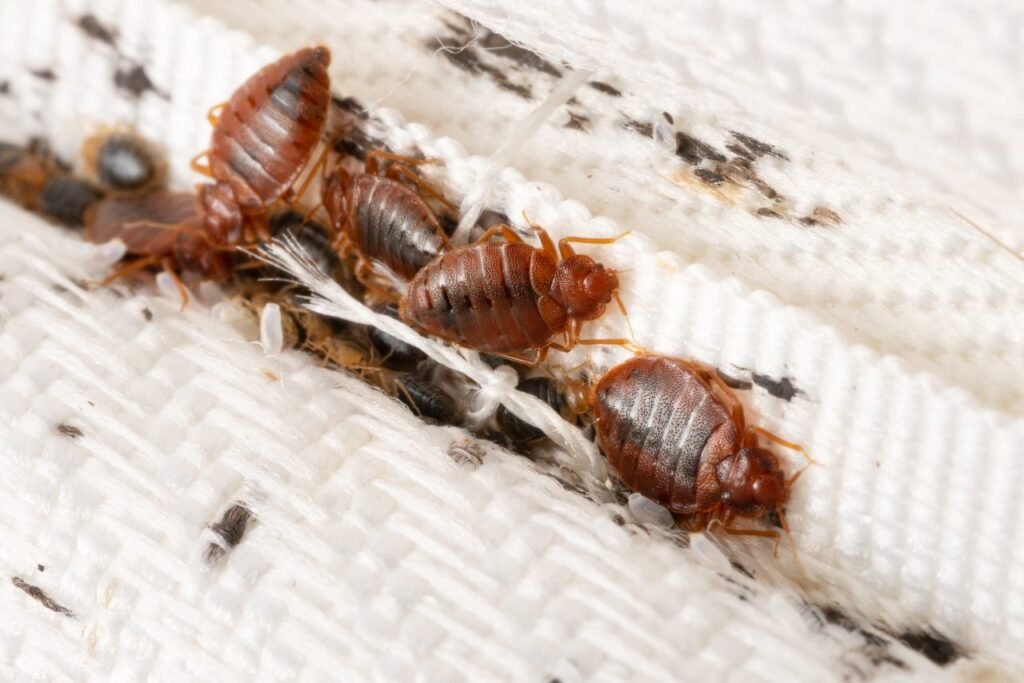The rapid reproduction rate of bed bugs is a source of frustration and concern for many homeowners and pest control professionals alike. Despite their small size, bed bugs can multiply rapidly, leading to infestations that are difficult to eradicate. Understanding the factors that contribute to their prolific reproduction is essential for effectively managing infestations. In this blog, we’ll explore what helps bed bugs reproduce so quickly, from their reproductive biology to environmental factors that facilitate their proliferation.
By gaining insights into the mechanisms behind their rapid reproduction, we can better equip ourselves to combat and prevent bed bug infestations in homes and businesses.
What Helps Bed Bugs Reproduce So Quickly ?
Bed bugs (Cimex lectularius) are known for their rapid reproduction, and several factors contribute to their prolific breeding:
- High Fertility Rates: Bed bugs have a high reproductive potential. A single female bed bug can lay hundreds of eggs in her lifetime. The ability of each female to produce a large number of eggs contributes significantly to the rapid growth of infestations.
- Short Reproductive Cycle: Bed bugs have a relatively short reproductive cycle. The time it takes for eggs to hatch and develop into adult bed bugs can be as short as a few weeks under optimal conditions. This short life cycle allows for multiple generations to be produced within a year.
- Resilience and Adaptability: Bed bugs are resilient and adaptable insects. They can survive and reproduce in various environmental conditions, including a wide range of temperatures. Their ability to adapt makes it challenging to control infestations using environmental factors alone.
- Mating Habits: Bed bugs mate through traumatic insemination, where the male bed bug pierces the female’s abdomen to inseminate her. This unique mating method can lead to a rapid transfer of sperm and increased reproductive efficiency.
- Hidden Breeding Sites: Bed bugs are excellent at finding hiding spots, often in close proximity to their hosts. They hide in cracks, crevices, and seams of mattresses, furniture, and other harborages. This behavior makes it challenging to locate and eliminate their eggs and nymphs.
- Human Transport: Bed bugs are hitchhikers and can easily be transported by humans. Infestations can spread rapidly through the movement of infested furniture, luggage, clothing, and other items. This human-assisted transport contributes to the quick dispersal of bugs.
- Nocturnal Feeding Behavior: Bed bugs are primarily nocturnal and feed on their hosts while they sleep. Their feeding habits are stealthy, and they can go unnoticed for an extended period. This allows them to feed, reproduce, and retreat to hiding places without immediate detection.
To effectively address bed bug infestations and prevent their rapid reproduction, a multifaceted approach is essential. This includes thorough inspection, proper identification, targeted insecticide applications, use of integrated pest management (IPM) strategies, and, in some cases, the assistance of professional pest control services. Early detection and prompt action are crucial in controlling and preventing the spread of bugs in residential and commercial settings.
Read Also: What’s New in Pest Control Industry in 2024
Conclusion
In conclusion, the rapid reproduction of bed bugs can be attributed to a combination of factors, including their ability to quickly mature from nymph to adult, their prolific egg-laying capacity, and their resilience in various environmental conditions. Additionally, the lack of natural predators and their ability to hide in inaccessible areas further contribute to their unchecked proliferation. To effectively manage bed bug infestations, it is crucial to implement comprehensive control measures that target both adult bugs and their eggs, as well as address potential hiding spots and conducive environments. By understanding the factors that contribute to their rapid reproduction, homeowners and pest control professionals can develop more effective strategies to combat bed bug infestations and prevent future outbreaks.
If you’re struggling with a bug infestation and need professional assistance, don’t hesitate to contact Tulsa Bed Bug Exterminator. Our expert team specializes in effective bug control solutions tailored to your specific needs. Schedule a consultation today and take the first step towards reclaiming your home from bugs.


Recent Comments